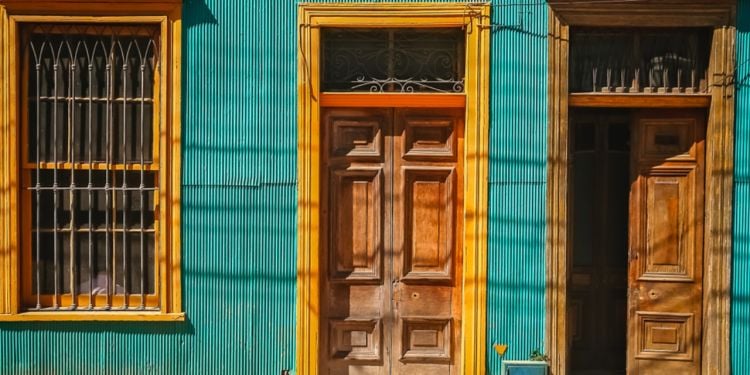
Chile has a history of strong private property rights for Chilean citizens and foreigners alike. Although the government may legally expropriate property, including the property of foreign investors, for public or national interests, expropriation is rare as property rights and contracts are strongly respected.
This means it is unlikely that the state or anyone else will take your property. You can buy property in Chile as a tourist, but you will need to go to the SII (the Chilean Tax Service) to obtain a RUN card (a tax ID), so you can pay the appropriate taxes on your purchase. This is only good for buying property or cars; you will need to apply for residency to receive an official RUT that will allow you to open a bank account, among other benefits.
Finding a property in Chile
Finding a desirable property in Chile may require the most work. There is no MLS system in this country. A Multiple Listing Service lets you look at all properties for sale in any given area. Real estate agents aren't regulated in Chile, so you should proceed with caution when deciding to go through one. You can find properties in Santiago on websites like Portal Inmobiliaro. If you prefer to buy properties in a region, you can check out Yapo.cl, which has properties mostly for sale by owners. If you go with this option, you need to know standard values and, of course, speak Spanish well enough to negotiate.
Making an offer
Making an offer and agreeing on a price can be tricky, so you need to do some research to see what the going rates are for similar properties. As Chile does not have an open courthouse system to research property sales, this can be difficult. Most of the time, everything is done by word of mouth, and you may want to consider hiring a translator to help with the process if your Spanish isn't good enough. Real estate prices are typically listed in Unidad de Fomento (UF), a form of currency tied to the Chilean peso, but adjusted for inflation to provide more consistent prices.
Coinmill is a website where you can convert the UF into the currency of your choice.
Finding a lawyer and signing the contract
The next step would be to find a lawyer who is both honest and competent. This is another situation where word of mouth and who you know can be important. You may want your lawyer to draw up a formal promissory agreement which will protect you from sellers with cold feet or who may change their mind on the sales price.
Once the terms are settled, your lawyer will want to conduct a title search. Your lawyer will need the property's tax number and the last name of the owner, or a copy of the current title to start reviewing the property's history. The title search process verifies that there are no liens or prohibitions on the property, no tax debt and that it's clear to be sold. Total costs for title searches vary from flat fees of between USD 500 and USD 1,000 to a percentage of the purchase price (up to 1%).
Transferring funds
If everything checks out and the property is clean, then you need to arrange the transfer of funds. Unless you already have permanent residency in Chile, you usually won't be allowed to open a personal bank account. It is almost impossible for a non-resident to obtain a mortgage; most foreigners buy in cash. See our article on Banking and finance in Chile for further information.
Lawyers will sometimes assist with receiving funds from outside the country and placing them into an escrow account, but the money has to be approved by the Chilean Central Bank, which will usually request documentation for the source of funds that are being invested in Chile. Banks charge approximately 1% for the transfer and currency exchange, but the larger brokerages usually have a better conversion rate.
Signing the deed
Once you've got the transfer of funds sorted, you can then set the date with the seller to sign the deed at the notary. It is customary to leave the funds for the purchase in “custody” or escrow with the notary until the new title is recorded. After both parties sign, you need to pay the notary fee (usually between USD 200 and USD 400), and then you can pick up the stamped copies of the deed the following day.
Conservador de Bienes Raíces
Once you have the stamped deed from the notary, the last step is having it inscribed (or recorded) at the inscription office which is known as the Conservador de Bienes Raíces. The fee for inscribing or recording the property usually works out to a little under 0.5% of the purchase price. After anywhere from 5 to 25 days, the new title will be recorded, and you are the official new owner of the property.
Useful links:
SII- Servicio de Impuestos Internos
Portal Inmobiliaro
Realtor
Remax Global
Engel&Volkers
Viva Street
We do our best to provide accurate and up to date information. However, if you have noticed any inaccuracies in this article, please let us know in the comments section below.








